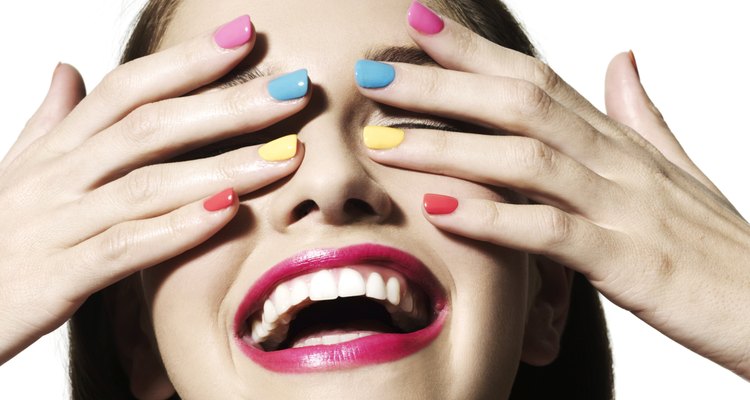
Elizabeth Hachem/Lifesize/Getty Images
Many women yearn for strong, healthy long nails. But diet, lifestyle habits and heredity can cause nails to become dry and brittle, to crack and break off. While nothing will make them grow faster -- including soaking them in water -- there are things you can do to strengthen them so that they grow longer.
Nail Anatomy
Nails are made of keratin and act as protecting cover plates and important areas for detecting objects by touch since the fingertips have so many nerve endings. It takes six months for the nail to completely grow out from the "base" or matrix of the nail. The matrix is actually below the skin toward the bottom of a nail. On average, nails grow at the rate of 1/8 of an inch per month. Different factors, including heredity, hormones, medicines taken and temperature can affect the speed for different individuals. This is why you may notice your nails grow faster when you’re pregnant or during summer months. Poor nutrition or circulation, infections and age can all slow nail growth.
Diet
A diet deficient in protein and vitamins could lead to dry, brittle nails. Lack of vitamin A, calcium, protein, folic acid, vitamin C, hydrochloric, zinc, essential fatty acids and vitamin B12 can all affect nail health. Symptoms of deficiency include red skin around the nails, hang nails, white bands and dry, brittle nails. Check with your doctor if you think you may be experiencing any type of deficiency.
Lifestyle and Care
Nail biting or onychophagia is one of the main causes of damaged, hard-to-grow nails among adults. Proper care of the cuticles goes a long with nail biting since typically nail biters will pick or cut these and cause additional harm. Cuticles should be gently pushed down, not cut. Nippers should be used carefully or by a nail tech. Severe nail biting requires a doctor's visit to determine a course of treatment. To keep nails healthy and strong, Marsha Gordon, M.D., associate clinical professor of dermatology and vice chairman of the dermatology department at Mount Sinai School of Medicine, recommends keeping the nails hydrated and avoiding the use of harsh chemicals and tools. Using cuticle oil and hand lotion regularly with a nail hardening base coat can help to prevent breakage. Visiting the nail salon for regular manicures weekly or biweekly is also beneficial for healthy nails.
Things to Avoid
Nail polish remover with acetone can be drying, so try to avoid using it more than twice a month. To prevent breakage, always wear gloves when doing the dishes and cleaning, avoid using nails as tools and don’t bite your nails or pick at cuticles. If you enjoy getting your nails done at the salon and opt for enhancements like gels, acrylics or soak-off gel polish, make sure your nail tech is using the correct removal methods. Improper removal of acrylics, for example, can lift the natural nail and cause permanent and painful damage.
Soaking
Although soaking nails in water won’t help them grow faster, this is a remedy for nails that have turned yellow after wearing dark polishes. To get rid of the yellow color, soak nails in half a cup of water plus the juice of one lemon for 15 minutes.
Related Articles

How to Treat Dry Nails

How to Repair Damaged Nails
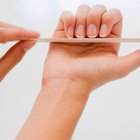
How to Make Your Nails Hard

How to Clean Your Fingernails for Men

Do Nails Grow Faster With or Without ...
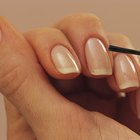
How to Make Nails Look Better After ...
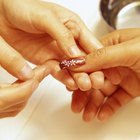
How to Get Acrylic Nails Off at Home ...
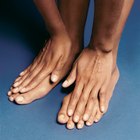
How to Make Nails Thicker

How to Treat a Cracked Nail
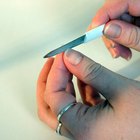
How to Regrow Nails
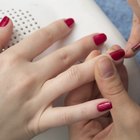
The Best Products for Thin Peeling ...
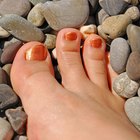
Crumbling Nail Tips
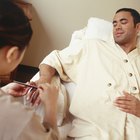
Cures for Acetone Damaged Nails
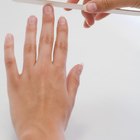
How to Take Care of Nails After Acrylics

What Is a Full Set Manicure?

How to Extend Your Acrylic Nails ...
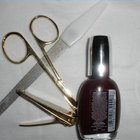
How Does Nail Polish Protect ...
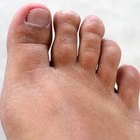
How to Kill a Nail Bed

Tips on How to Have Healthy Nails for ...
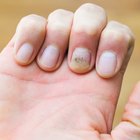
How Do I Get Yellow Stains Out of My ...
References
Writer Bio
Chloé Baudin has been a health and lifestyle writer and editor since 2008. She has contributed to online and print magazines, covering personal finance, home decor, travel, preventative health, sports, science, technology, psychology and relationships.
Photo Credits
Elizabeth Hachem/Lifesize/Getty Images